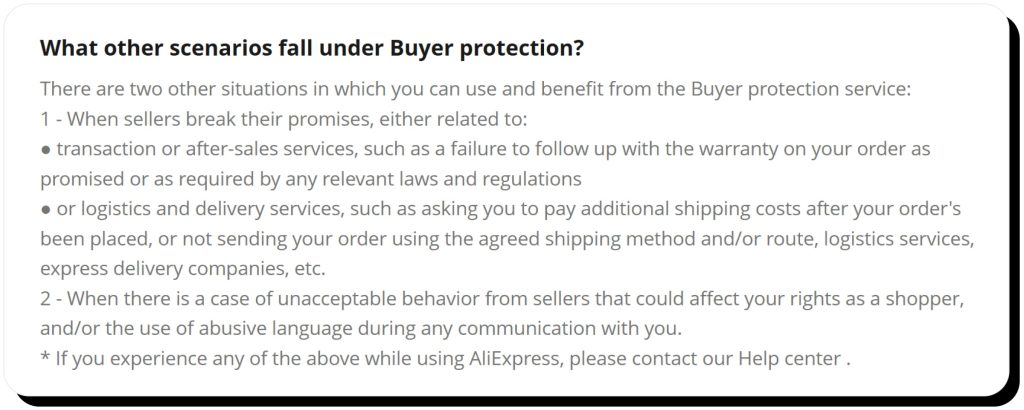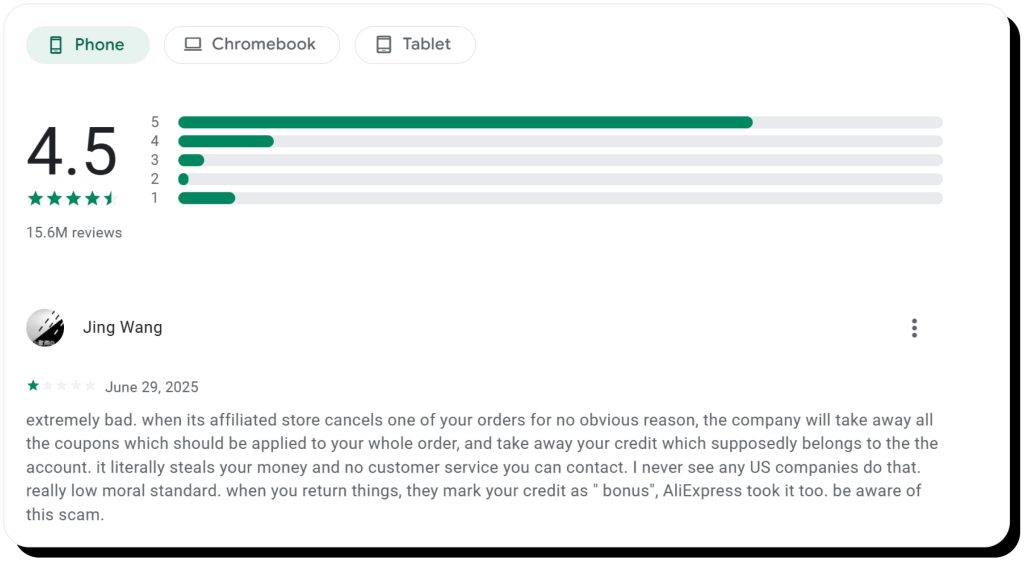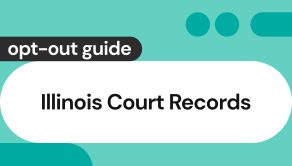Is AliExpress legit? Unpacking buyer protections and common complaints

AliExpress is a legitimate website owned by the Alibaba Group, which is among the largest e-commerce organizations in the world. AliExpress links sellers (mostly Chinese) and buyers, with a buyer protection scheme and secure payment methods provided.
Although the site is safe and reliable in itself, your experience as a shopper will be highly determined by individual sellers and your own research. To make your shopping smooth and successful, choose sellers with lots of reviews, read product descriptions thoroughly, learn about the protection policies in place, and set realistic expectations regarding shipping and quality of goods.
What is AliExpress?
AliExpress is a global online marketplace that was initially introduced in 2010 and is now among the most popular e-commerce platforms in the world. The website is home to a huge range of products, from electronics to fashion items, home decor, makeup, pet supplies, garden equipment, and even car parts. Most goods are unbranded, but there are also some genuine branded products sold by authorized dealers.
Unlike traditional retailers like Amazon, which often stock and distribute goods from their own warehouses, AliExpress acts solely as a marketplace on which third-party sellers list their items. The sellers, who are predominantly based in China, manage their inventory, delivery, and after-sales service themselves. AliExpress acts as a middleman, carrying out transactions, providing the infrastructure, and offering buyer protection services.
This direct connection to Chinese sellers and manufacturers is the primary reason the platform has such low prices. On the other hand, shipping usually takes longer than domestic options (2-6 weeks on standard shipping) and seller reliability varies greatly across the platform.
Is AliExpress a legitimate company?
AliExpress is a legit website, owned by Alibaba Group, a publicly traded company. Alibaba’s credibility is well established—the company held an IPO in 2014 and succeeded in becoming the largest IPO in history at that point, raising 25 billion dollars.
The e-commerce platform is available via a website and an app, each employing several security measures to protect buyers. These include using SSL/TLS encryption for secure data transmission, processing payments through AliPay, implementing optional two-factor authentication (2FA) for account security, encrypting stored payment information, and employing fraud detection systems to monitor transactions.
Other aspects that help the company demonstrate its legitimacy are adhering to international trade rules and regulations and collaborating with leading online payment service providers like Splitit and PingPong.
It is, however, vital to note that although AliExpress itself is a legitimate platform, not every seller is equally reliable. It’s possible to get scammed even on Amazon, and AliExpress is not immune to fraudulent sellers as well.
Is AliExpress safe to use?
AliExpress is safe to use—as long as you do proper research and take advantage of the protections the platform provides:
Payment security
AliExpress accepts various payment methods, including such safe options as Apple Pay, Google Pay, credit and debit cards, and PayPal. Transactions are processed using secure SSL/TLS encryption, safeguarding payment and personal data during checkout. Additionally, AliExpress uses an escrow system, which means the platform keeps your money until you receive your order and signal the release of the funds. This safeguards buyers against fraudulent sellers who accept payments but never ship any goods.
Buyer protection program
AliExpress’s buyer protection covers items that never arrive, are damaged, or differ greatly from their descriptions. Depending on the circumstances, you may be eligible for a refund or a new item shipped to you instead of the faulty one. The protection applies to the majority of purchases, except those personalized, perishable, and unsuitable for return due to hygiene or health reasons. Importantly, you need to open a dispute within the protection period, which is quite long, however (typically 60 days).

Shipping tracking
AliExpress provides shipping tracking on most orders, allowing buyers to monitor their package’s journey in their account and via email notifications. You can check whether the item has been shipped, left China, arrived in the destination country, and cleared customs. Thus, if there are delays, you can see where your order got stuck. However, for some economy shipping options, tracking may be limited or stop updating once the parcel leaves the exporting country.
Review system
AliExpress has a robust review system that allows buyers to leave feedback and ratings based on various criteria. Buyers can rate products on a 1- to 5-star scale, write detailed comments about their experience, and upload photos and videos showing the item received. These reviews are visible on product pages and can be filtered by rating, country, and reviews with images, making it easier to verify product quality and sizing before ordering.
Data privacy
Being a Chinese company, AliExpress faces concerns around data collection and use. The platform does collect some user data, including your name, shipping address, payment details, and browsing activity, to process orders and improve the shopping experience. However, this is not significantly different from what other major e-commerce sites like Amazon or eBay collect. Moreover, AliExpress uses encryption and secure systems to protect personal information, and using it for shopping doesn’t inherently pose a greater privacy risk than using other online shopping platforms.
Risk zones
As previously mentioned, not all sellers are equally reliable and some product categories have greater risks:
- Electronics, especially branded gadgets, are prone to counterfeits and malfunction.
- Makeup and skincare products don’t usually list the ingredients used.
- Fashion items claiming to be from luxury brands are frequently counterfeits.
- Products listed as gold and silver are prone to fake certifications and unclear metal compositions.
- Nutritional supplements and health devices lack regulatory approval and may have fake certifications as well.
Unfortunately, AliExpress doesn’t have a system in place to verify whether a product that’s listed as branded is genuine. Though the platform does remove counterfeit listings when reported, it’s up to buyers to do proper research and check other users’ feedback.
Common complaints and issues
Regardless of its legitimacy, AliExpress has received quite a few complaints over the years. As of the time this article is being written, AliExpress’s claimed Trustpilot profile has 2.4 out of 5 stars based on over 170K reviews. A Reviews.io profile has 1.4 stars based on over 3K reviews. Admittedly, such platforms do tend to have lower ratings as customers typically turn to them to leave complaints, not positive feedback.
As for the AliExpress app, the situation is much different, with 4.5 stars on Google Play and 4.7 in the App Store. Among other things, users praise great deals, easy shopping experience, and a wide selection of products.
As for complaints, the most common are:
- Fake products that are alleged to be from well-known brands but aren’t actually authentic.
- Product quality disparities, with inconsistencies in materials, fabrication, and sizing.
- Lengthy resolution procedures as some sellers are unresponsive or uncooperative.
- Challenges with returning products.
Some users also mention slow delivery, especially compared to similar platforms like Shein. However, this one is a bit debatable, as AliExpress provides delivery estimates, its lengthy shipping timeframes are described in its policies, and sometimes orders are delayed at customs. Setting realistic expectations and checking what other users are saying about both a product and its delivery is key to a successful shopping experience on AliExpress.

Pros and cons of using AliExpress
While individual experiences may vary, the general advantages and limitations of AliExpress are the following:
| Pros | Cons |
|---|---|
| Extremely competitive prices Vast product selection Buyer protection program with refund guarantees No minimum order requirements Multiple secure payment options Detailed review system with photos and videos Access to products that might not be available locally | Long shipping times Variable product quality Potential for counterfeit items Difficult and expensive returns Sizing inconsistencies, especially in clothing Product descriptions may be inaccurate Customs duties may apply |
How to shop safely on AliExpress
To make your AliExpress shopping safe and reduce the chances of getting scammed, follow these practices:
- Research sellers thoroughly: Check seller ratings and recent reviews. Opt for those who have a “Top brand” badge as it indicates a verified high-performing seller.
- Scrutinize product descriptions: Check sizing charts, materials, and any other important details. See if reviews match the info in descriptions.
- Start small: When you’re buying from a new seller or purchasing costly items, keep the initial order small. That way, you will be able to check whether the seller is reliable and assess the quality of the goods before investing more.
- Avoid “too good to be true” deals: Branded products that are sold at unusually low prices are probably counterfeits.
- Use secure payment methods: Whenever you can, use PayPal or credit cards, as they provide their own protections in addition to AliExpress ones.
- Check shipping options: You may want to consider paying more to ship via quicker or tracked shipping methods. Although they are more costly, you’ll be able to monitor where your order is.
- Document everything: Take screenshots of product listings, communication with the seller, and order confirmations. This record will be vital in case you want to initiate a dispute.
- Understand return policies: Get acquainted with the seller’s return policy before ordering and consider any possible costs you may have to incur in the event of returning goods to China.
- Read product reviews carefully: Pay special attention to reviews that have photos and videos of the actual products received, since these are your closest shot at finding out what items are actually like.

FAQs
Is it safe to buy from AliExpress?
Yes, you can safely shop on AliExpress, provided that you do your research. The site offers buyer protection, safe payment processing, and dispute resolution. Nonetheless, the key is choosing sellers with a good reputation and examining reviews from other users.
Can AliExpress be trusted?
AliExpress is a trustworthy platform, owned by an online retail giant, Alibaba Group. However, it’s only a middleman between you and sellers, and the latter vary greatly in reliability. It’s up to you to do extensive research and begin with small, less risky orders.
Does AliExpress sell fake stuff?
AliExpress does not sell products itself since it’s a marketplace, but there is a chance that sellers on there may list fake goods, especially fashion items, electronics, and luxury products. There are policies against counterfeit items on the platform, but they aren’t enforced rigorously and consistently. It’s better to avoid ordering allegedly branded products, especially those sold at a very cheap price.
Is AliExpress a scam?
No, AliExpress is not a scam. It is a valid online shopping platform. However, as with any marketplace, there are individual sellers with questionable integrity. To protect customers, AliExpress has buyer protections in place that allow you to open disputes and request refunds.
How does AliExpress work?
AliExpress works as a global online marketplace where third-party sellers, primarily based in China, list products that shoppers worldwide can purchase directly. Sellers themselves handle inventory, shipping, and customer service, which results in shipping times and product quality varying across the platform. AliExpress doesn’t have its own product selection, pricing, and fulfillment like Temu does. Instead, it operates more like eBay, giving buyers access to a vast range of products directly from sellers.





Mark comes from a strong background in the identity theft protection and consumer credit world, having spent 4 years at Experian, including working on FreeCreditReport and ProtectMyID. He is frequently featured on various media outlets, including MarketWatch, Yahoo News, WTVC, CBS News, and others.